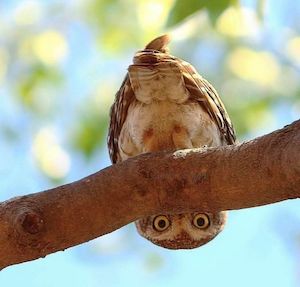Bondi Iceberg Swimming Club dates back to 1929 and owes its origin to the desire of a band of local life savers trying to maintain their fitness during the Winter months.
In 1927, a Czechoslovakian football team jumped on a ship and set sail for a 19-game tour of Australia - the first of many similar voyages that would be taken by European clubs over the ensuing years.
They returned home with a new name, a new mascot - inspired by two live wallabies gifted to them by the Queensland government - and an enduring emotional link to the country that so warmly embraced them, which their supporters still celebrate to this day.
Nearly a full century later, the remarkable story of Bohemians Praha 1905 could be about to come full circle.
The Herald can reveal an Australian consortium - led by former players’ union boss John Didulica - is in talks to purchase a controlling stake in the Czech First League club.
Nearly a full century later, the remarkable story of Bohemians Praha 1905 could be about to come full circle.
The Herald can reveal an Australian consortium - led by former players’ union boss John Didulica - is in talks to purchase a controlling stake in the Czech First League club.
Their aim is to solidify Bohemians’ long-standing connection to Australia by making it a landing pad for players, coaches and staff with ambitions of breaking into European football, while also helping the club establish itself as a Czech powerhouse and a regular on the continental stage.
Didulica is a highly-respected football executive who has worked for Football Australia, Melbourne City and the PFA, and is now the CEO of talent management agency W Sports & Media, which represents the likes of Lleyton Hewitt, Alex Di Minaur, Eddie Betts and television personality Ryan Fitzgerald.
The consortium Didulica leads, according to sources, includes a range of investors who believe leveraging the unique nature of Bohemians’ backstory could have a material impact on football in Australia, at a time when players are struggling to break into top leagues and established coaches like Tony Popovic and Kevin Muscat are facing similar challenges.
“I appreciate the interest but as you can no doubt understand, we’re not in a position to make any comment,” Didulica told the Herald.
An information memorandum on the proposed sale, seen by the Herald, talks of “a perfect nexus between respecting the club’s proud traditions, continuing to build the shared history between Bohemians and Australia and creating an opportunity for shrewd investment within football that can help Bohemians become a regular on the European stage.”
Bohemians have not qualified for European competition for the last 33 years. Their most famous player - and current chairman - is Antonin Panenka, the man credited with inventing the cheeky penalty technique of the same name.
But with two qualifying slots for the UEFA Champions League available in the Czech Republic each season - and only two historically strong clubs, city rivals Slavia Prague and Sparta Prague - the consortium believes it can use Australian football’s human and financial resources to turn Bohemians into a regular contender.
In turn, they also believe they can unlock the hidden value of Australian players on the transfer market, with the Czech Republic having sold close to $100 million in talent to bigger European clubs in recent years.
Bohemians also manage their own 5000-seat stadium, in the heart of Prague, and a training facility which could become a home away from home for the Socceroos, Matildas and other Australian national teams in one of the world’s most popular tourism destinations - an idea which sources say has been put to Football Australia.
The concept of an Australian-owned and controlled club in Europe is not new. A separate group of investors tried it with English club Charlton Athletic several years ago but could not get their takeover across the line, while Popovic’s recent sacking at Greek second-division club Xanthi FC, which was bought last year by Sydney businessman Bill Papas, does not bode well for their plans to become a Socceroos ‘nursery’.
What sets Bohemians apart is an existing historical connection to Australia, which remains an intrinsic part of the club’s identity. Early last year, as the bushfires made worldwide headlines, Bohemians responded by encouraging fans to donate to a wildlife rescue fund.
Seven years ago, a group of Bohemians fans flew down under to retrace the famous steps of the team that accepted the overtures of Australian football officials, who wanted a team from Europe to tour the country to help spread the gospel of the sport.
The club was known at the time as AFK Vrsovice but changed its name to Bohemians, a reference to the Bohemia region of the Czech Republic, to make it easier for Australians to pronounce - although the media generally referred to them as the “Czechoslovakian team” as it travelled through the country, stopping off in all the major capital cities and even Wagga Wagga, Woonona and Cessnock for games against local teams.
The two wallabies - which inspired the team’s nickname Klokani, the Czech term for kangaroos - were later donated to the Prague Zoo. One is apparently taxidermied and on display at the team’s stadium, and legend has it their descendants still live at the zoo to this day.
Czech mate: Aussie consortium in talks to turn Prague’s ‘Kangaroos’ into European power







